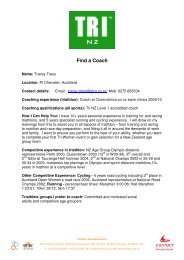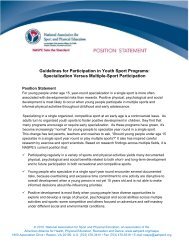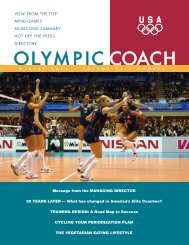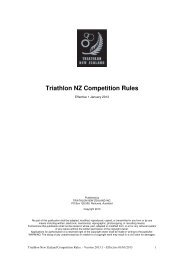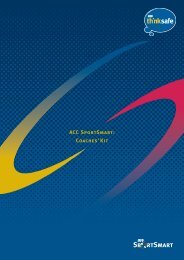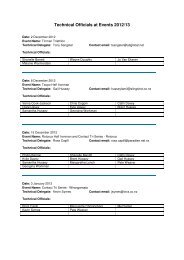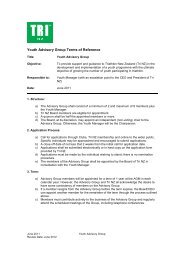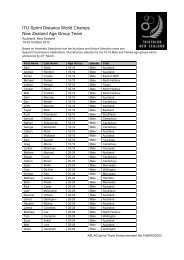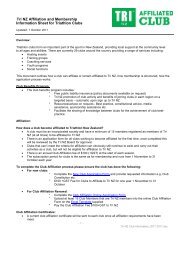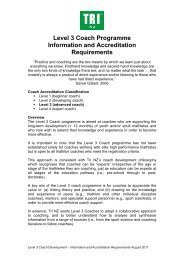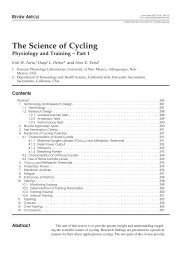Coach Tracking Study(PDF) - sports coach UK
Coach Tracking Study(PDF) - sports coach UK
Coach Tracking Study(PDF) - sports coach UK
You also want an ePaper? Increase the reach of your titles
YUMPU automatically turns print PDFs into web optimized ePapers that Google loves.
COACH TRACKING STUDY<br />
Facilitating<br />
Planning programmes (over a season, year, cycle)<br />
Evaluating sessions/programmes<br />
Decision making<br />
Observation and analysis<br />
Understanding/evaluating athlete/player<br />
Knowledge of a wide range of <strong>coach</strong>ing methods<br />
Managing the <strong>coach</strong>ing environment<br />
Responsiveness/adaptability to situation/person<br />
Self-reflection and critical thinking<br />
Technical/tactical knowledge<br />
Motivating athletes<br />
Providing feedback<br />
Listening<br />
Questioning<br />
Providing instruction<br />
Planning sessions: structure, format, content<br />
Organisation of sessions (eg facilities,<br />
equipment, health and safety)<br />
-3 -2 -1<br />
0 1 2 3 4 5 6 7 8<br />
Percentage point change<br />
Figure 1: Change in knowledge/information sources sought by <strong>coach</strong>es<br />
(percentage point difference Year Two to Year Four)<br />
The value placed on<br />
information sources<br />
While <strong>coach</strong>es continue to seek out learning<br />
opportunities, there has been a decline in the importance<br />
they assign to various types of knowledge and information.<br />
Although these changes are relatively small (and as<br />
Table 3 shows, 88% of <strong>coach</strong>es still agree that all types<br />
of information are important), what is of more interest is<br />
that this shift confirms a recurring trend of traditional<br />
<strong>coach</strong>ing knowledge being supplemented by interpersonal<br />
and reflection skills.<br />
Table 3 shows that basic <strong>coach</strong>ing skills around the<br />
planning and organisation of a session are the most likely<br />
to have decreased in importance for <strong>coach</strong>es, while those<br />
information sources that maintained their value in the eyes<br />
of <strong>coach</strong>es involved more interpersonal skills (such as<br />
motivating, listening, providing feedback, and<br />
responsiveness) and evaluation skills.<br />
8


